On Tuesday 4 October 2022, the French Red Cross Foundation organized the third edition of its annual meeting on humanitarian and social research. This year’s event, organized at the Condorcet Campus Conference Center, in partnership with the EHESS, brought together nearly 100 people from 20 different countries, including scientists, practitioners of social action and international solidarity, journalists, students, NGO managers and members of the Red Cross Movement.
Review the detailed program of the day
Disseminating the knowledge created
This day was an opportunity to present the results of the work of the six researchers supported and accompanied by the Foundation between 2020 and 2022. The six laureates presented the main lines of their research before putting them into perspective and submitting them to debate during three thematic round-tables, bringing together scientists and operational staff. In line with the Foundation’s commitment to disseminate knowledge, the aim of the day was to enable meetings and dialogue between different actors in the humanitarian and social fields and to encourage a free and open exchange of knowledge and practices.
In his opening speech, Mr. Christophe Prochasson, President of the École des hautes études en sciences sociales (EHESS), expressed his enthusiasm for this collaboration which is in line with the research supported by EHESS on humanitarian issues. The question of the stakes and the relevance of research in the human and social sciences was also underlined by Mr. Philippe Da Costa, President of the French Red Cross and of the Foundation.
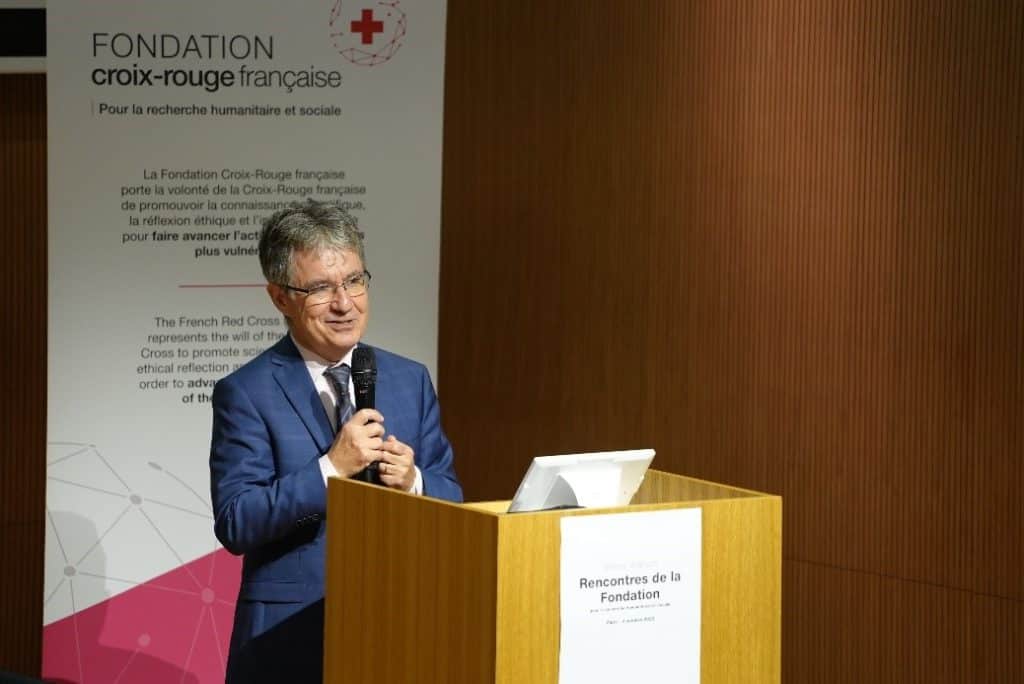
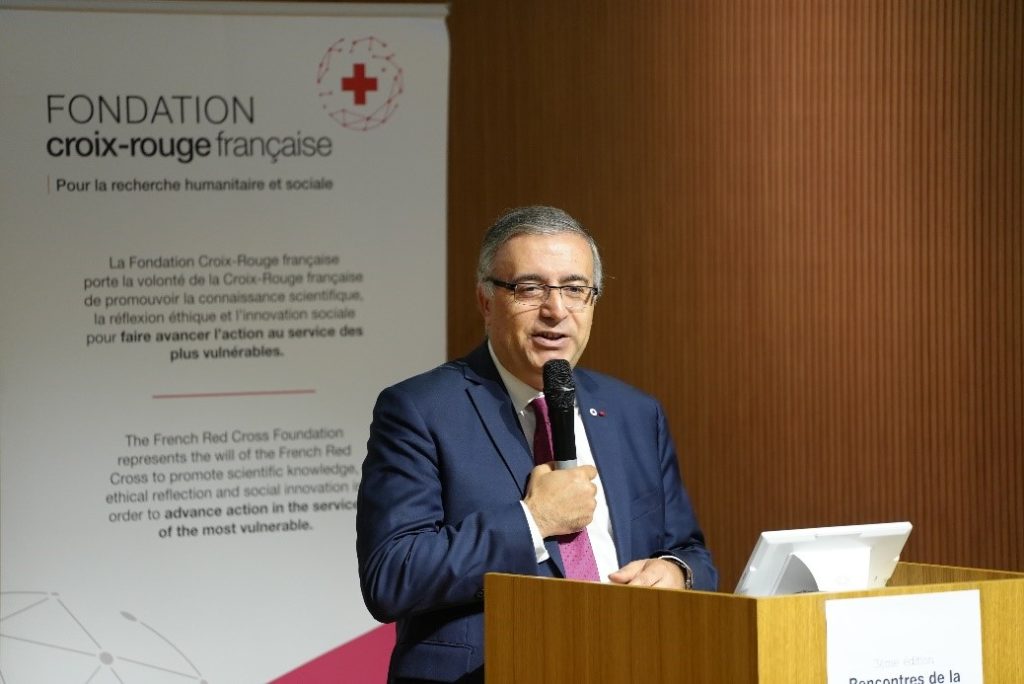
The question of the social link debated during three round-tables
Over the past two years, the scientific work carried out by the Foundation’s research grant recipients has shed particular light on the social link.
Theme 1: Humanitarian action and the challenge of maintaining social links
If the health crisis and the confinements linked to the Covid-19 pandemic have recently brought to light the importance of the social link, acting to maintain it or to fight against the consequences of a defective or failing social link is not often an area of intervention prioritized by humanitarian or social actors. Yet, social ties can be a lever or an effective bulwark against many social or health problems. And conversely, the consequences of a defective or failing social link, such as situations of isolation for example, can be the cause of health problems or poverty. But what is the social link? Can we act on it, create or recreate it? If so, how? What do we know about the conditions for the success of such actions, whether it is a question of identifying socially isolated people or of initiatives intended to create or recreate social ties? What possible role for social action or international solidarity practitioners in this action?
The debate on this theme started with the presentation of the results of the work of :
- Mr. Louis Braverman, PhD in sociology, University of Bretagne Occidentale: “EHPAD “hors les murs”: an innovative model of home support in the face of the challenges of the fight against isolation”, research conducted with the support of AGIRC-ARRCO and the VYV Group (read the Foundation’s paper and Mr. Braverman’s Pratiques & Humanités)
- Mr. François-Xavier Schweyer, sociologist, École des hautes études en santé publique (EHESP): “Croix-Rouge Chez Vous: un nouveau dispositif de solidarité en temps de crise. Volunteers, listening experiences, local appropriations.” (read the report by Mr. Schweyer, Ms. Parizot, Ms. Hadj and Mr. Pfirsch on the CNLE website)
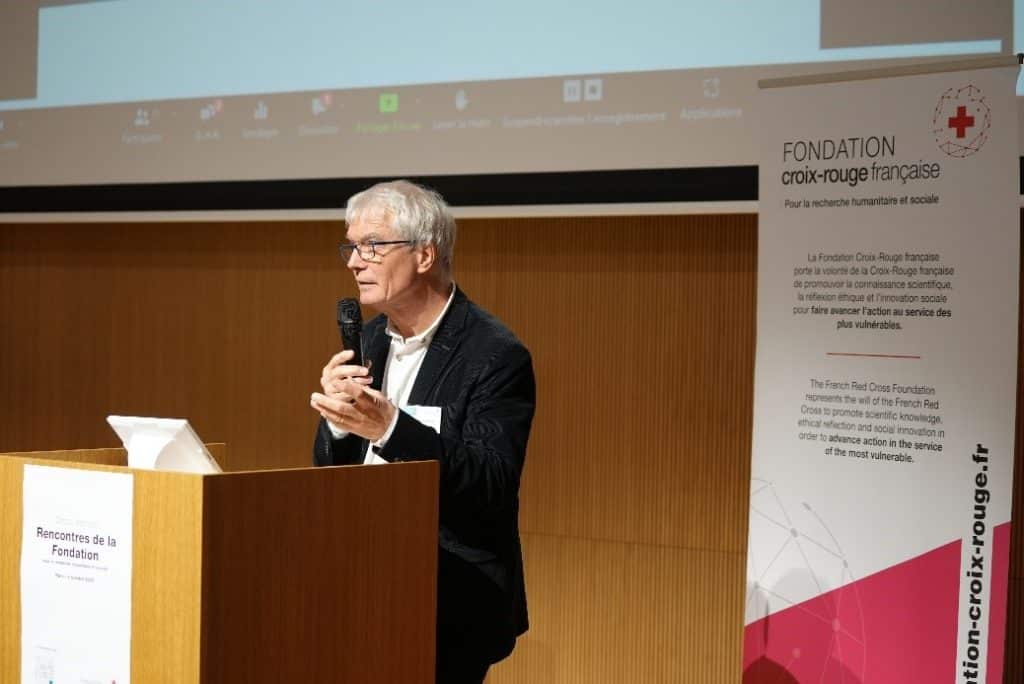
Mr. Braverman spoke about the uniqueness of the “vivre@lamaison” system, a reinforced home support system (DRAD) set up by the French Red Cross and the interest of offering an alternative solution to the home and to the EHPAD to support the anchoring of elderly people in their environment. Mr. Schweyer recounted the emergency deployment of the “Red Cross at home” system during the first confinement.
The two researchers joined the round-table discussion moderated by Ms. Viviane Châtel, lecturer and researcher at the Francophone Chair of Social Work and Social Policies at the University of Fribourg (Switzerland), on the following theme: “Humanitarian action and the challenge of social ties”. The debate was also enriched by Ms. Isabelle Aokou, in charge of the “Club des mères” program and Gender Focal Point at the Togolese Red Cross, who recalled the vital importance of maintaining social ties in African societies. Ms. Flavia Stea Antonini, Director of the “Protection and Risk Reduction” technical department at Handicap International, emphasized the changes that have taken place in the ways in which Handicap International has produced or preserved social ties since the 1980s.
Theme 2: The social link to the test of the migratory experience
The second round-table continued the discussions of the first on the challenges of humanitarian action to maintain social links or to fight against the consequences of a defective or failing social link by addressing a specific case, that of exiles. Why is it particularly important to take this dimension into account in actions carried out for exiles? What is at stake for these populations? How to act on the social link of the exiles, among themselves, towards their population of origin, and towards the host population?
This theme was introduced by the presentations of :
- Ms. Florence Ihaddadène, doctor and teacher-researcher in the history of health, attached to the Centre de recherche sur l’histoire des peuples des savanes d’Afrique (CRESHA): “Des volontaires solidaires : le service civique par et pour les réfugiés”, research conducted with the support of the Fondation Crédit coopératif (read the Foundation’s paper and Ms. Ihaddadène’s Pratiques & Humanités)
- Mr. Emmanuel Niyonsaba, Doctor of Sociology (University of Le Havre Normandie, 2018): “Usages des TIC par les immigrés âgés en situation de vulnérabilité relationnelle : vers un usage accru en soutien du lien social à distance et du bien-être ?”, research conducted with the support of AGIRC-ARRCO and Groupe VYV (read Mr. Niyonsaba’s Pratiques & Humanités)
Ms. Ihaddadène questioned the conditions of success of civic service by refugees, the reproduction of the gendered division of labor and the effects of selection induced by such a device. Mr. Niyonsaba developed the importance of the role played by ICTs (information and communication technologies) in maintaining social ties among elderly migrants, while specifying that ICTs should not be a substitute for human interaction. The second round-table, moderated by Ms. Estelle d’Halluin, lecturer at the Sociology Department of the University of Nantes, on the theme “The social bond tested by the migratory experience” put their work into perspective. Their conclusions led to a lively debate in a panel discussion with Paul Alauzy, health watch project manager at Médecin du Monde, and Barbara Joannon, external relations officer at the United Nations High Commissioner for Refugees office in Paris. The latter recalled the importance that their respective organizations attach to the construction of programs for and with migrants aimed at building or rebuilding social links.
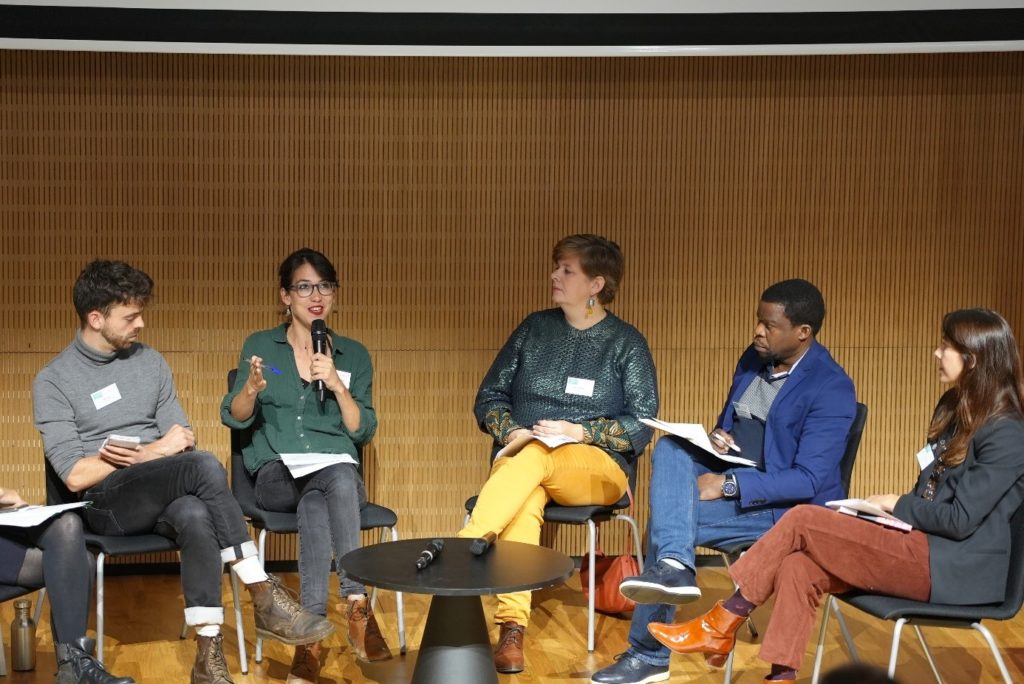
Theme 3: Volunteer involvement as a vehicle for social cohesion
The last round-table addressed the other important aspect of the link between humanitarian action and social ties: the commitment of volunteers itself is a vector of social ties for them, and this can even be a source of motivation for their commitment. Recently, the health crisis linked to the Covid-19 epidemic saw a large number of people getting involved in associations, especially during the confinements, confirming, like other crises, all the social well-being that volunteer involvement can bring. How does the importance of this aspect of volunteer involvement evolve over time and differ from country to country? How do humanitarian actors take into account this expectation at the origin of volunteers’ commitment?
This last theme was launched with two presentations:
- Ms. Bénédicte Bonzi, anthropologist: “Why and for what are we committed? Untie, link and connect”, research conducted with the support of the French Red Cross (read the Foundation’s Paper and Ms. Bonzi’s Pratiques & Humanités)
- Ms. Annabelle Jaccard, clinical psychologist and doctor in psychopathology and psychoanalysis: “The psychosocial impact of the covid-19 health crisis on Red Crescent volunteers in the Comoros: what place for psychological support and mental health care?”, research conducted with the support of the Indian Ocean Regional Intervention Platform (PIROI) of the French Red Cross, and the French Red Cross Foundation (read Ms. Jaccard’s Pratiques & Humanités)
Ms. Bonzi presented her work on the causes of volunteer engagement and disengagement in a context of restructuring of public policy systems, while Ms. Jaccard recounted the experiences of rejection and misunderstanding faced by Comorian Red Crescent volunteers during the Covid-19 health crisis.
The role of volunteers’ self-representations in their engagement, which they highlighted in presenting their findings, was then discussed during the third roundtable, moderated by Ms. Dan Ferrand-Bechmann, Professor Emeritus at Vincennes University. The issue of volunteer commitment as a vector of social cohesion was addressed by the panelists Mr. Adjmal Dulloo, global coordinator of volunteering at the International Federation of Red Cross and Red Crescent Societies (IFRC), and Mr. Hubert Pénicaud, “associative life” referent of France Bénévolat. The speakers reminded us that volunteer work takes very different forms depending on the person and the geographical area.
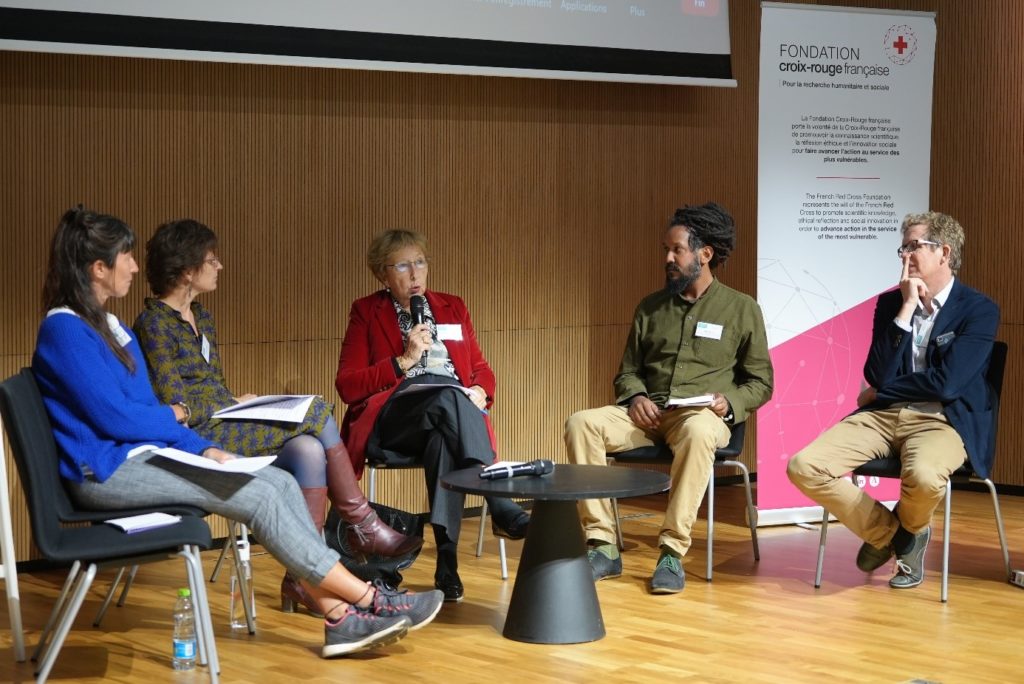
At the end of these three round-tables, the day continued with the award ceremony for the Foundation’s 2022 research prizes.
The day’s closing remarks were made by Ms. Caroline Callard, Vice President of Research at EHESS, Mr. Michel Agier, anthropologist and Director of Studies at EHESS, and Ms. Françoise Fromageau, Vice President of the Foundation.
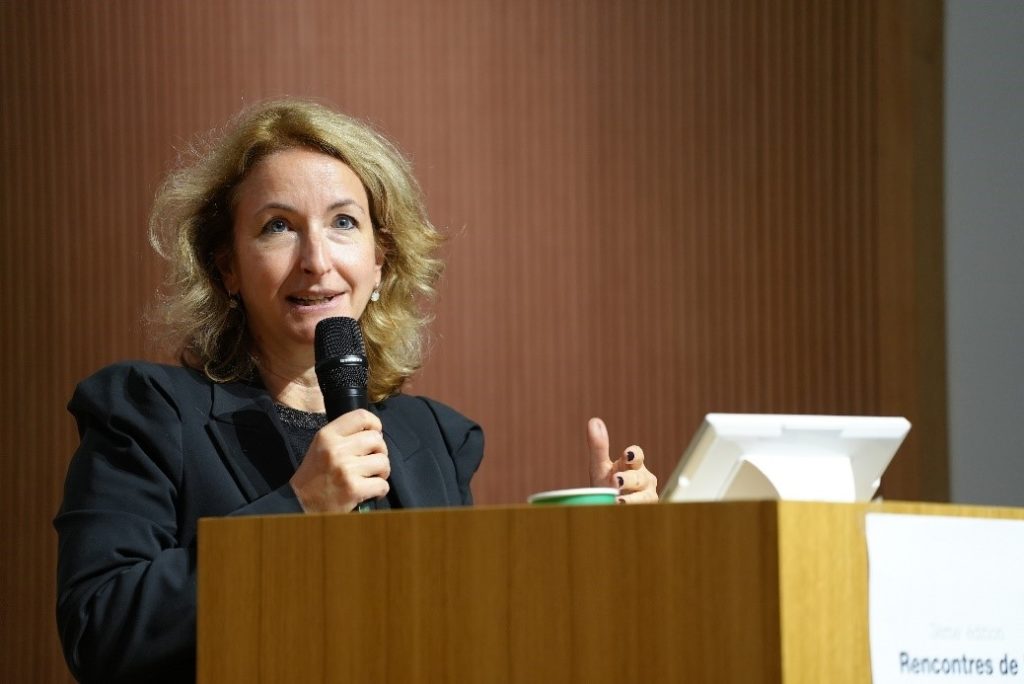
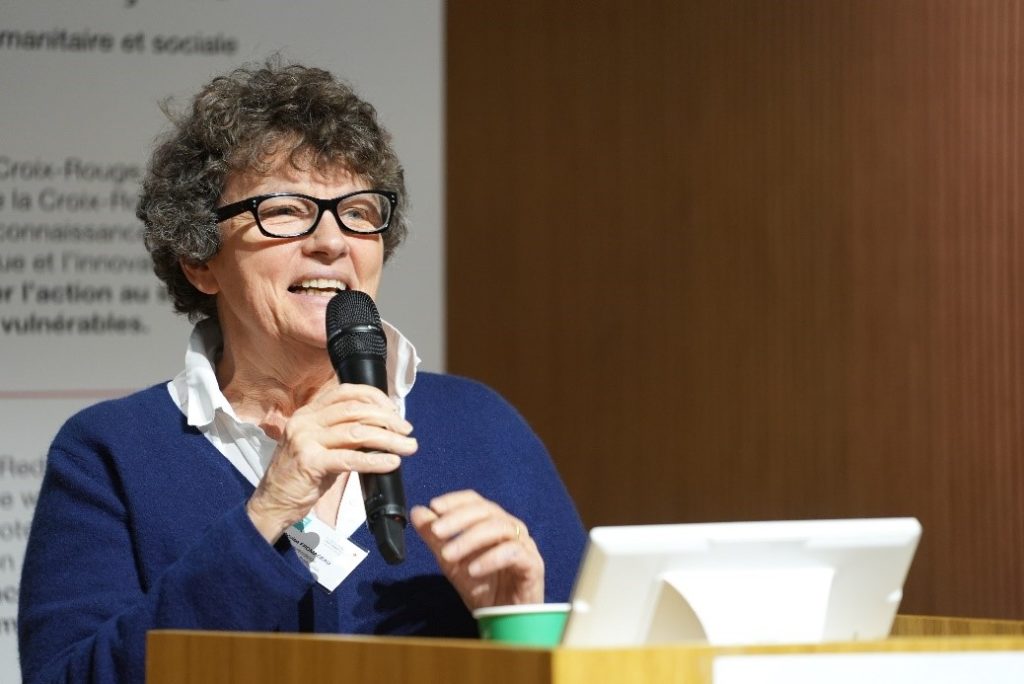
Watch the replay (French only)
A short video review of the day (5′)
Go further :





